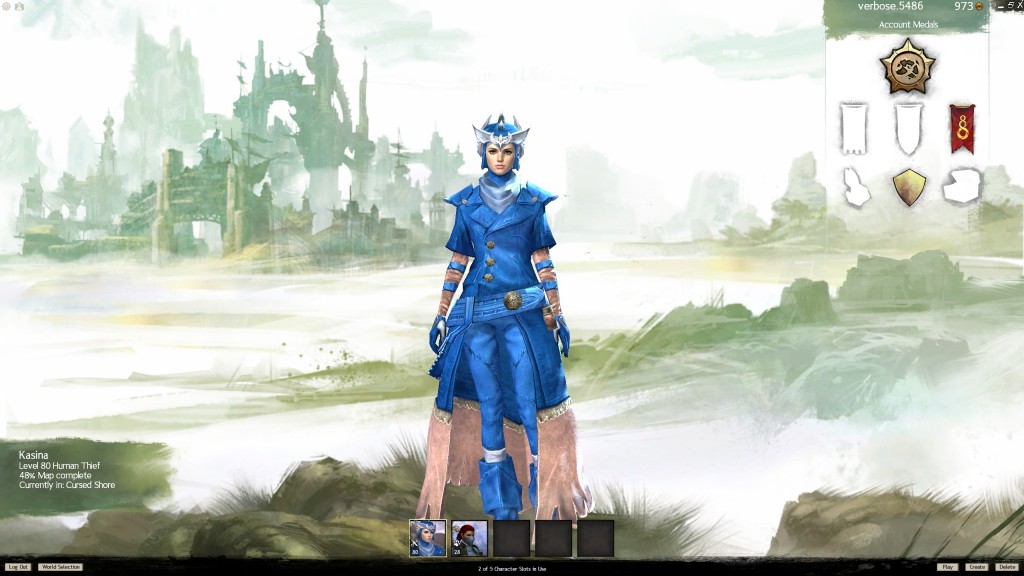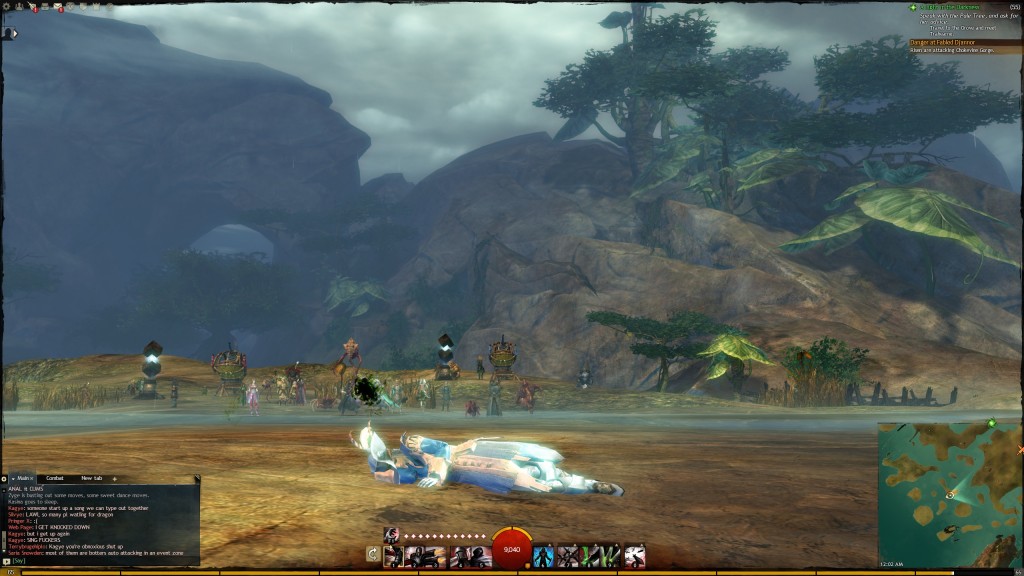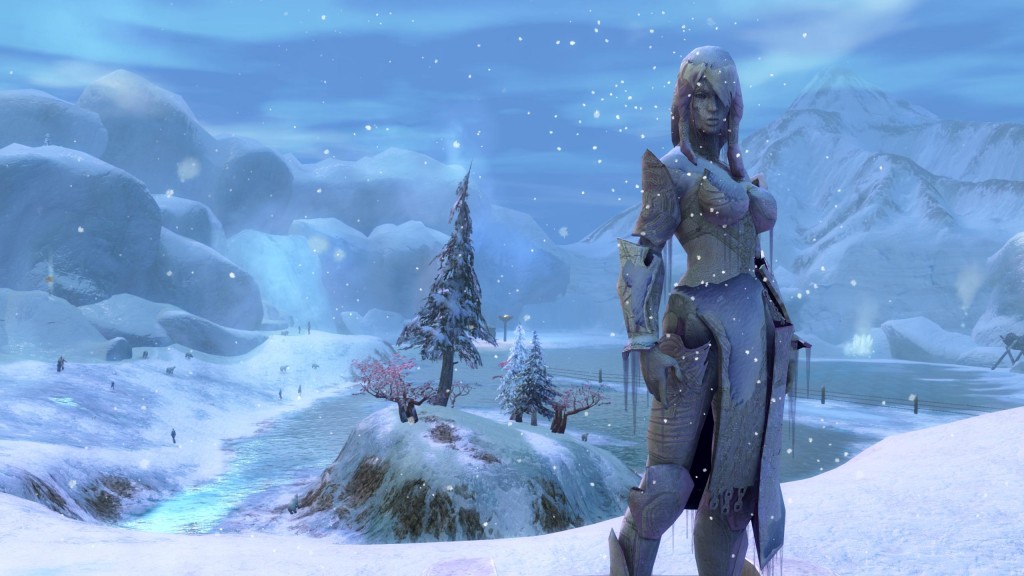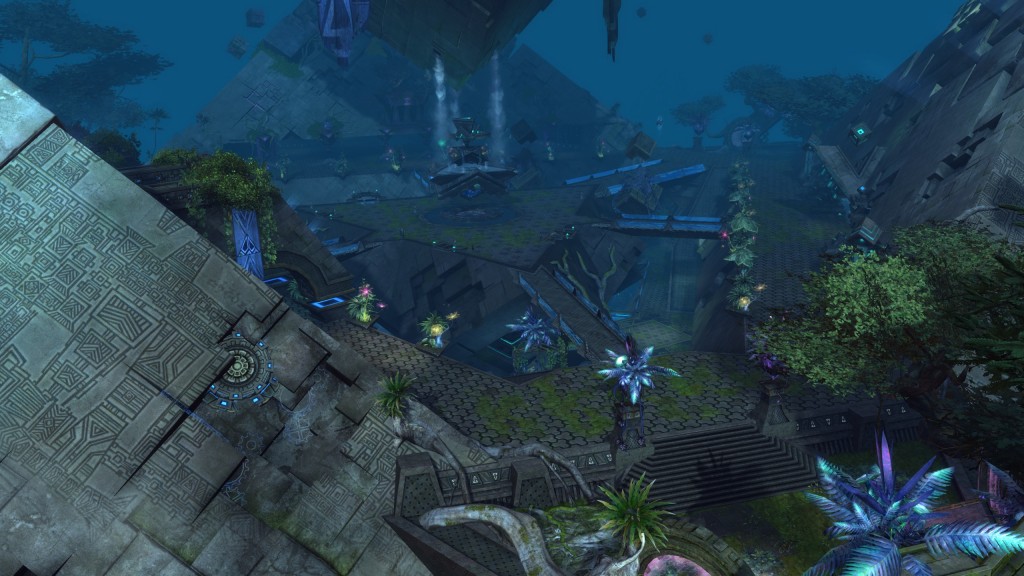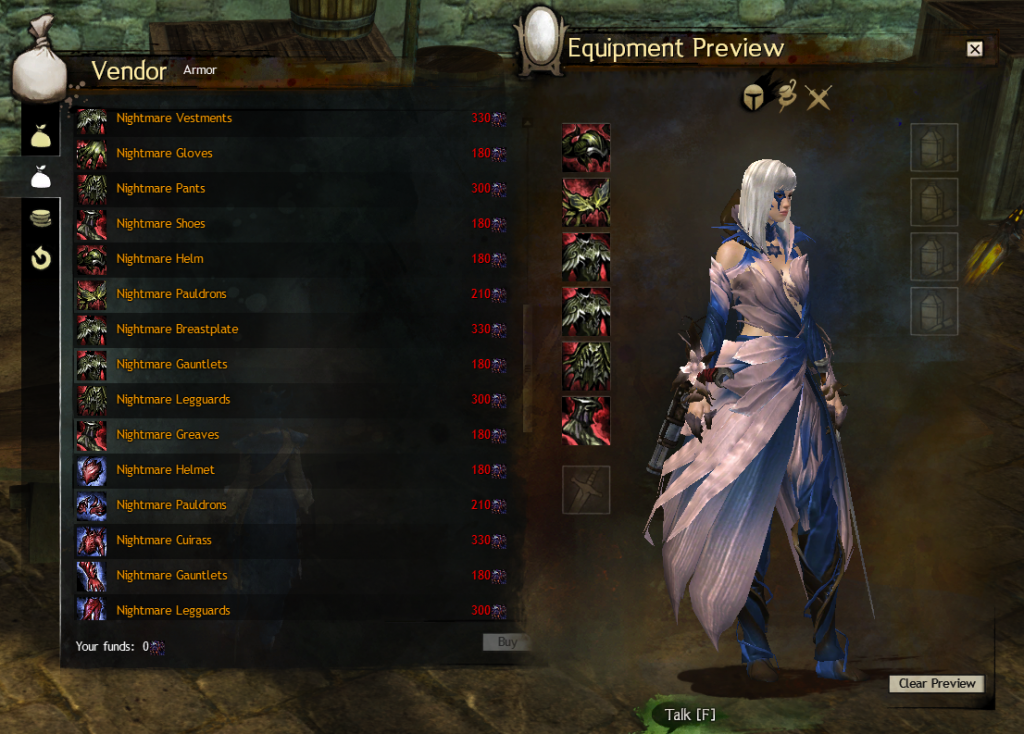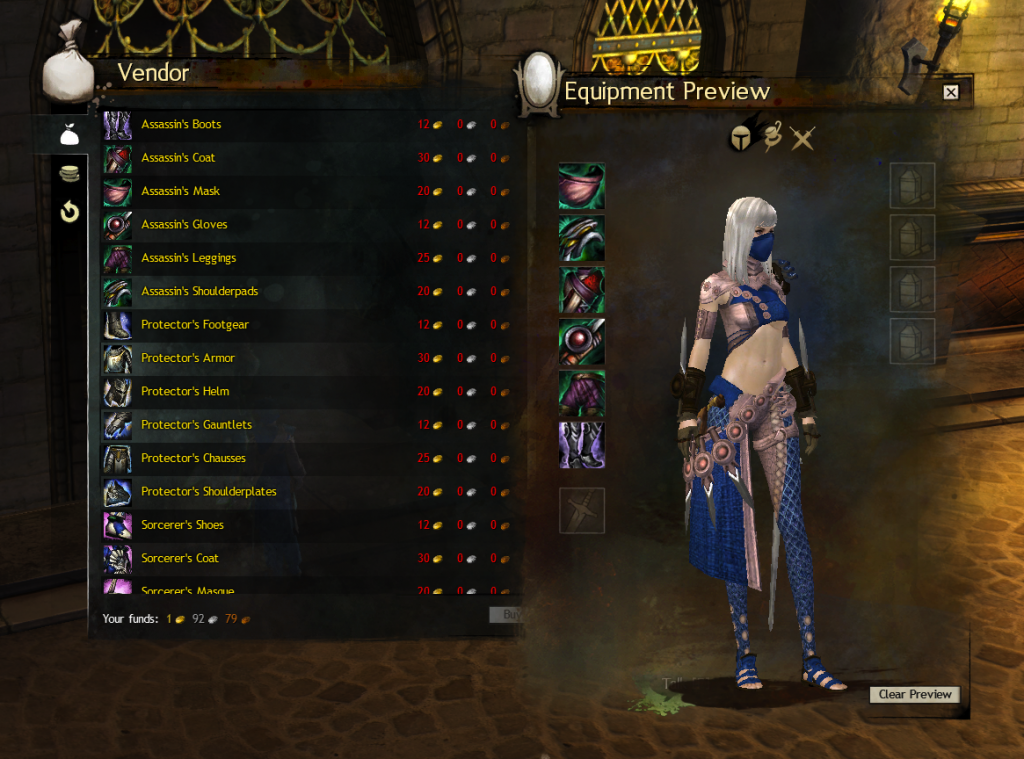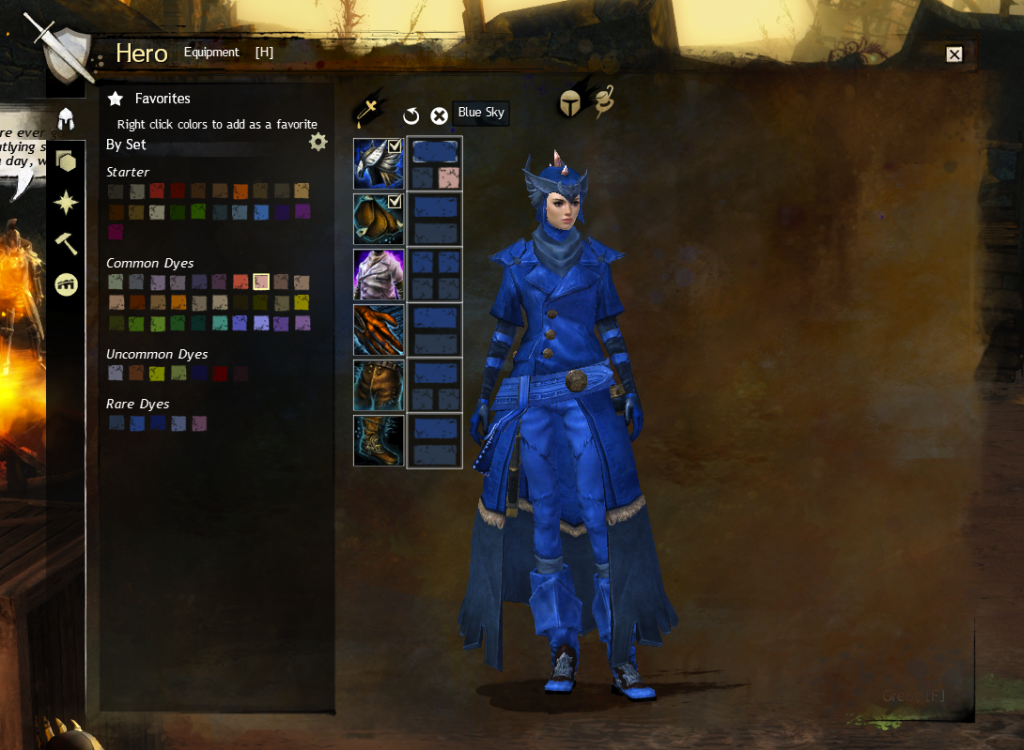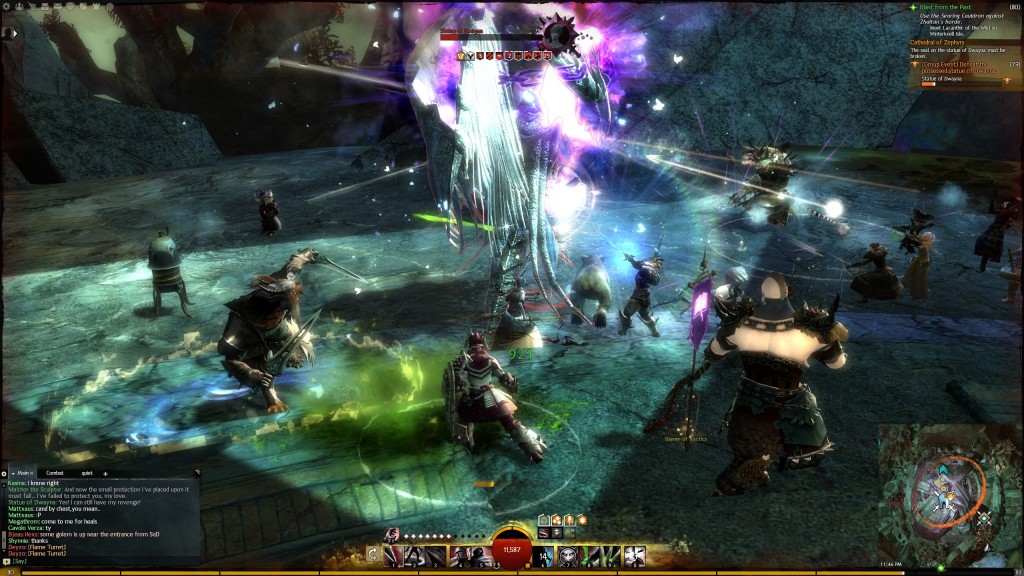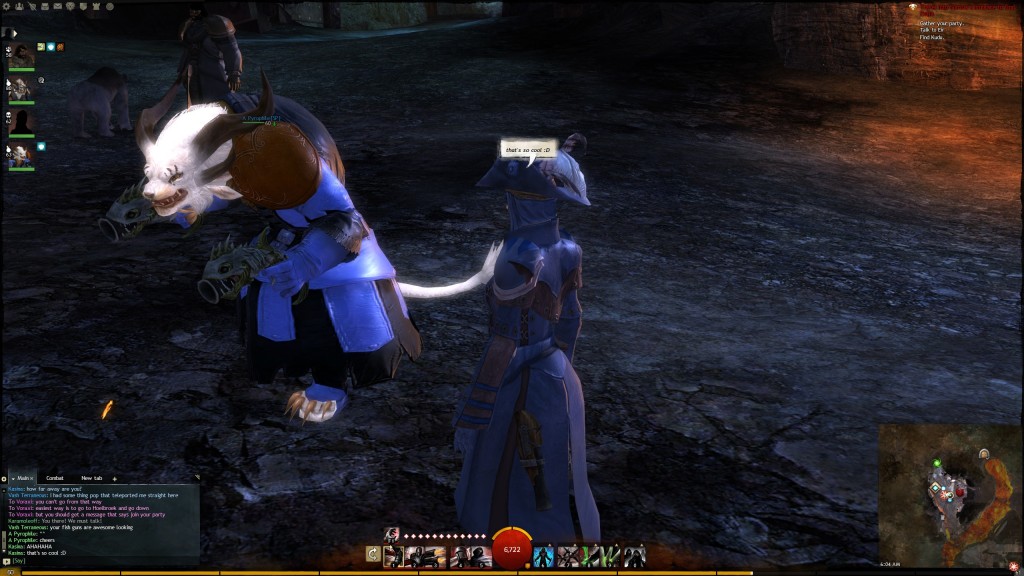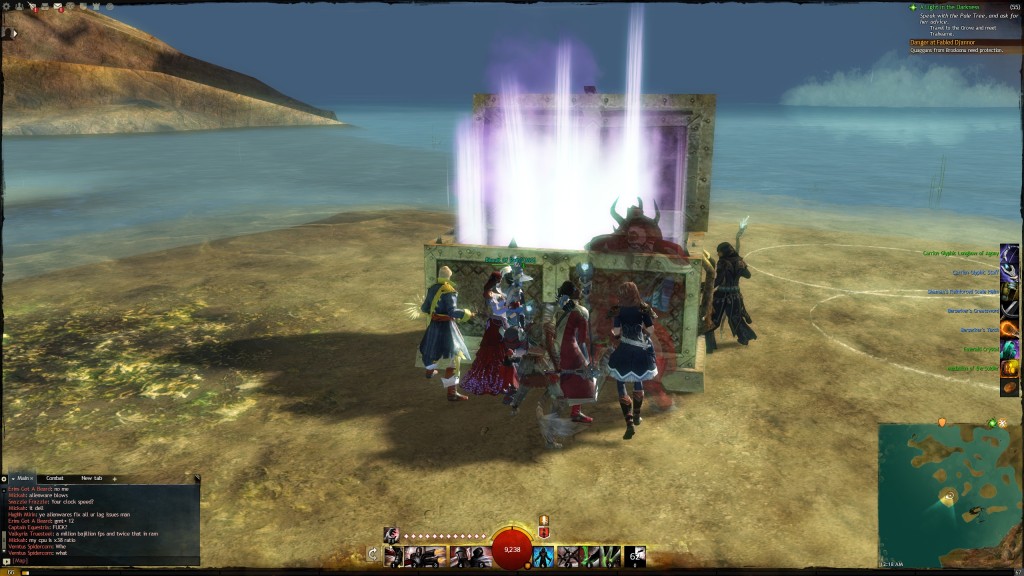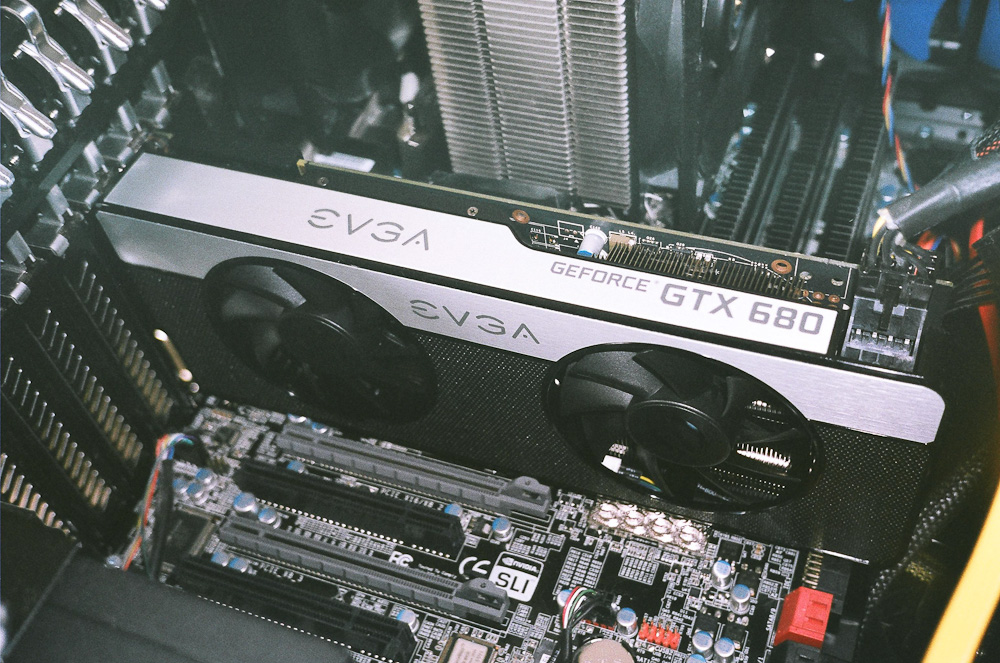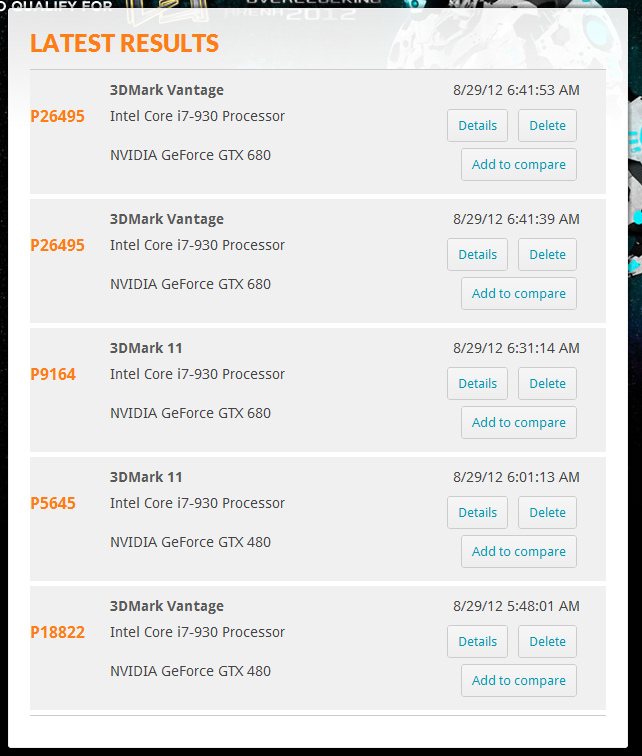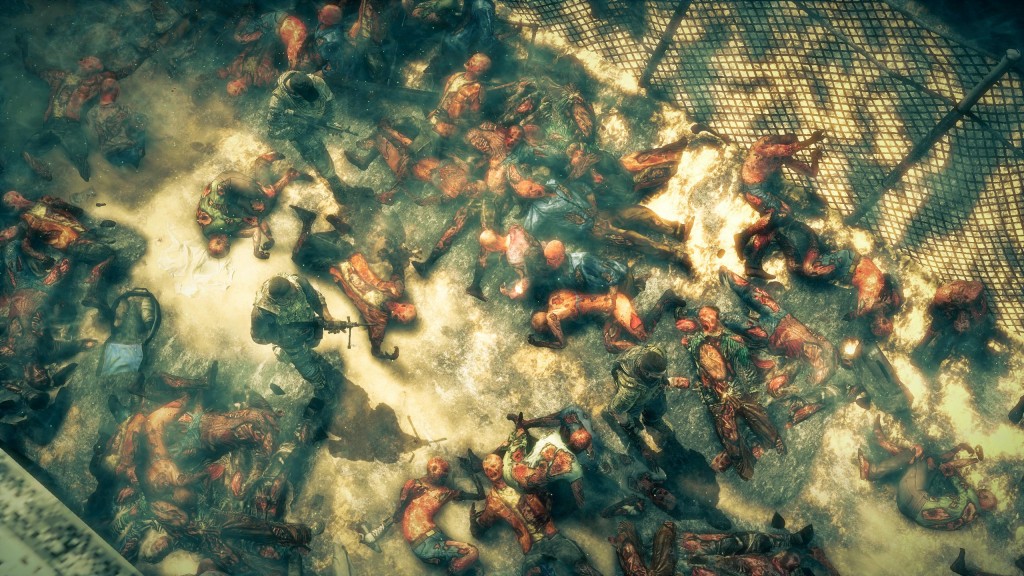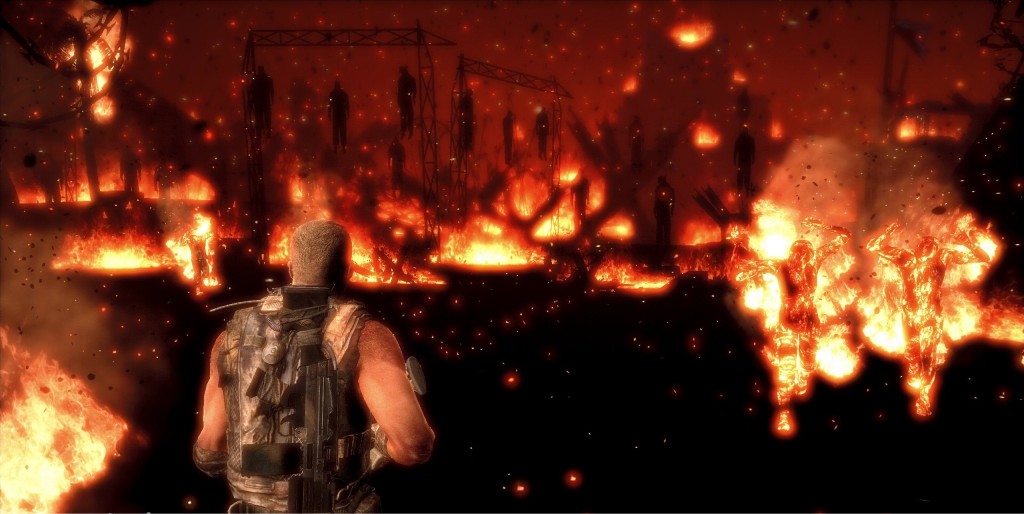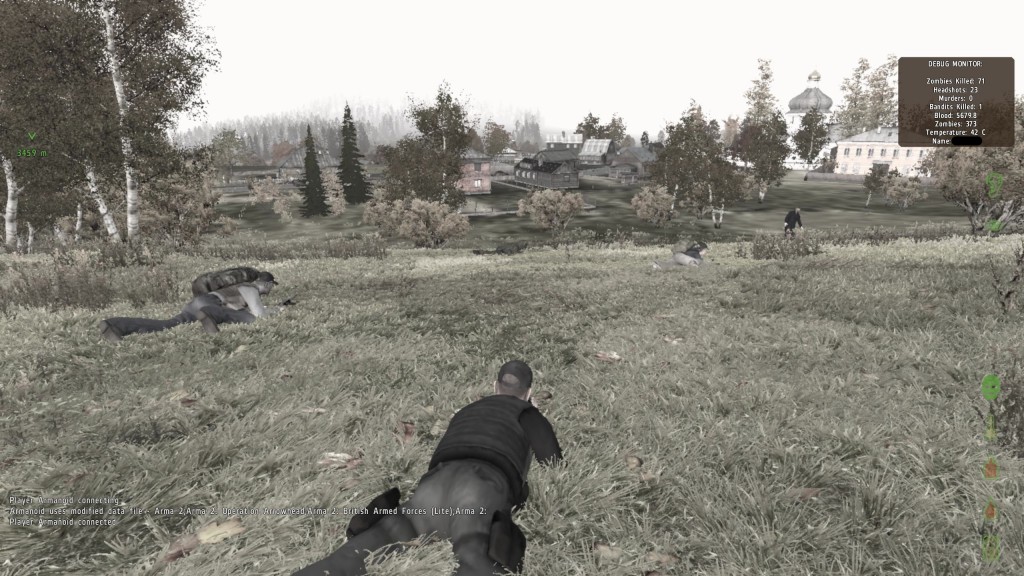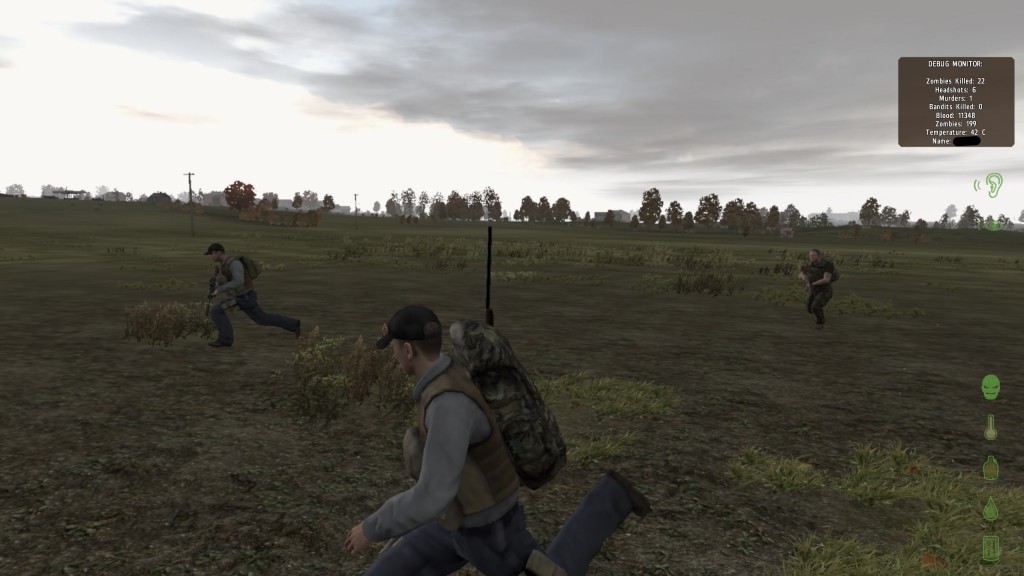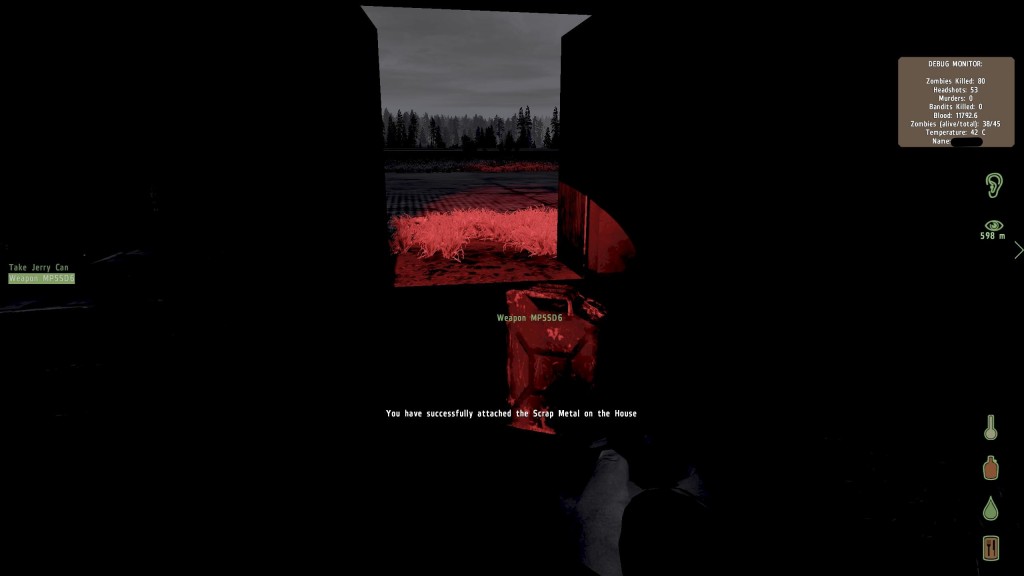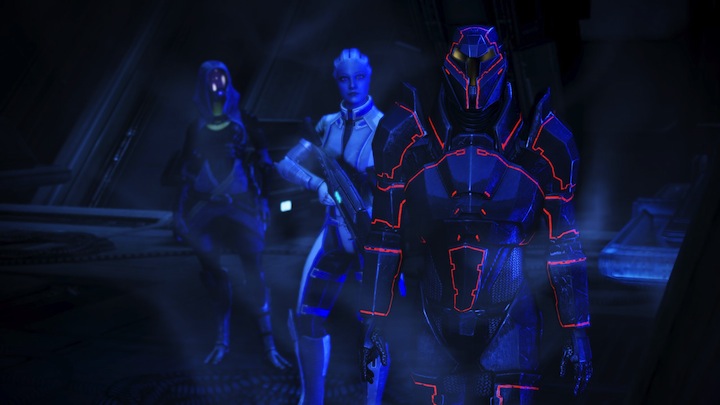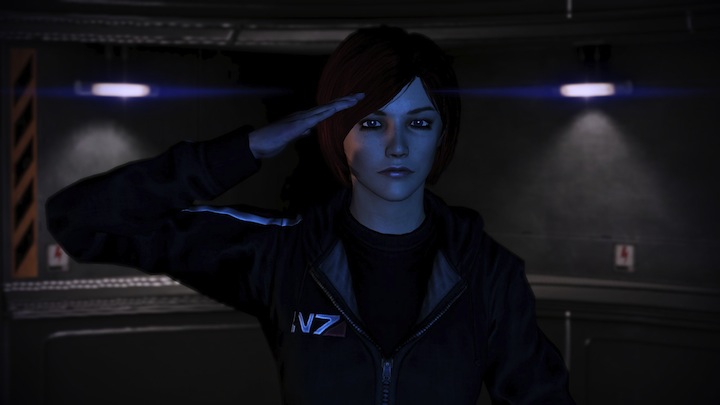Alternative title: a somewhat pensive review of Guild Wars 2 from the perspective of someone who has not completely immersed themselves into the stream of MMORPG culture, but has simply splashed around in the bathing pool, presented as a series of sections separated by descriptive titles
I’ve been playing Guild Wars 2 ever since Day Z kind of fell out of fashion, and I can honestly say it’s one of the best MMORPGs I’ve ever played. Mind you, that isn’t a huge list: I dabbled in WoW at one stage, got to level 60 within a respectable time frame, and I played the heck out of Star Wars: The Old Republic during its beta period. I enjoyed both of those games, to be sure, but there was always something that wasn’t quite right about each: WoW felt way too inundated with lore and background storylines, like it was some kind of Lord-of-the-Rings-style plot but for every single character. There were stories behind everything, but I just couldn’t care less about them. They were uninteresting, boring, whatever you want to call it.
The Old Republic was fine in that regard, as the Star Wars universe is a little more forgiving — there’s still a copious amount of backstory, but because it’s Star Wars, it’s forgiven, and at times, welcomed — people just can’t enough of those Jedi, I tell you. But the one thing that grated about The Old Republic was that it kind of felt tacky, like it was trying too hard to monetise something that should have come naturally. Suddenly the Star Wars universe wasn’t just about the big bad Sith and killing Stormtroopers, it was also about repairing droids, repairing things that went wrong, negotiating between various underworld characters. It felt like you were playing out the entire lives between what you see in the movies, which might have appealed to some, but felt overdone to others. Now that I think about it The Old Republic tried too hard in a lot of areas. That was probably the main reason why I didn’t bother renewing my subscription after the first month.
Guild Wars 2 is much, much different to the two aforementioned games. It’s still a fantasy RPG in that the environment isn’t, strictly-speaking, “real”, and at first I thought this would be a big downside — “ugh, not another fantasy RPG!” — but I now realise it wouldn’t have worked any other way.
I didn’t even think I would be buying it, at first. I’m not entirely sure what convinced me to, in the end, but I’m extremely glad I did, because Guild Wars 2 is a great game. Not so stooped in lore as to be overburdened, not trying too hard for the sake of a few pennies, but just right. The right mix of a compelling personal storyline, even if some of the initial choices were a little ridiculous (my biggest regret was not joining the circus? Really?), combined with good quest and event mechanics, and of course, the right amount of replayability. And perhaps one of the biggest pluses: no subscription fees.
It’s about exploration
One of my biggest features about Guild Wars 2 is the fact that it’s not all “go here, kill/collect/escort this person/thing, come back” — at least, it doesn’t have to be. There are quests like that, of course, but what’s really great is that once you’re in a new location, you can leave the questing until later and just explore. Guild Wars 2 has a big focus on exploration, and you can visit Vistas which count towards your overall region and map completion. Some of these Vistas are easy to get to, others require lots of jumping and falling, but all have a great view of some feature or structure in the game world.
And that’s not all — through trial and error, players have discovered jumping puzzles in almost every region. They’re not marked on your map, and the only real way people would have discovered them is via exploration. They’re fiendishly hard, and sometimes what you think is a jumping puzzle is actually just you jumping up and down mushrooms.
Like I said, Guild Wars 2 isn’t just a linear quest grind. It’s about exploration, and it’s a better game for it.
It’s about aesthetics
Guild Wars 2 is the same as other MMORPGs in that you’re always on the lookout for better-specced gear than the stuff you currently have, but different to other MMORPGs in that there’s an aesthetics element to it, as well. Sometimes you can’t bear to swap out your current Greatsword for one that has +999 Critical Hit Damage because it just looks crap on your character. I came across a dude that had fish heads for pistols one day, and that was awesome. Thankfully, if you do come across your next big Longbow that has vastly better stats but looks much worse than the Longbow you currently own, you can simply transmute (read: combine) the item so it’ll have the better stats of the Longbow you just found, but look just as awesome as the Longbow that you’ve been using.
Choosing armour is perhaps even more stressing for the player that cares about aesthetics, because even though there’s bonuses for having armour with the same rune/sigil/accessory, sometimes having the set doesn’t look as cool as these other great pants you crafted yourself. Or maybe you’re looking for a different outfit entirely — the best thing is you can preview how a certain piece of armour looks on your character before you spend the clams.
I mean, if you needed any more proof Guild Wars 2 is all about the aesthetics: there are random dye drops that let you change the colour of your armour, for crying out loud. People seem to gravitate towards black and white colours, but there’s plenty that can be done with an interesting colour palette. Changing the colour scheme could be all you need to give you character a new lease on life, aesthetics-wise.
It’s probably a little girly, but the aesthetics portion of Guild Wars 2 is fantastic. It probably makes up for not having as many character/face customisations as, say, the Mass Effect series.
You don’t have to play with others (but it’s a little better if you do)
Another thing I like about Guild Wars 2 is that you don’t have to play with friends — at least, not all the time. Because it’s all PvE, everyone in the region has common goals if you’re all doing quests or random events — if you’re doing a quest or an event, everyone gains with your participation, so it’s like everyone is always in a big group together, doing the same quests for the common good. I played solo all the way up to level 80 (the current level cap), and it wasn’t until I hit later stages of my personal story and later regions that I really found running around with someone else to be useful.
Speaking of which, your personal story is perhaps one of the only times (at least right from the outset) that you might want someone else along for the ride. You make all the decisions, of course, but sometimes it’s handy having someone else in your own personal story instances to help out with the combat, purely because the NPCs can be a little useless at times.
Just about the only time you’re forced to group with other players is when doing dungeons, and that’s to be expected.
Overall, Guild Wars 2 is pretty great. It’s the first MMORPG that I’ve really enjoyed, and for all the reasons above; exploration, aesthetics, and the not-pared down solo play. I’ve only scratched the surface of the game, becuase there’s so many aspects to it: there’s World vs World vs World, which is kinda puts different “worlds” against each other (think massive battlefields, contention for castles etc, but with everyone on your server playing for the same team), and then there’s also player-vs-player, which is kinda like WvWvW except on a smaller scale.
There’s dynamic events which everyone can do at any time, and oh — perhaps one of the best features of any MMORPG, ever — instanced loot, which means your loot is totally separate to others. No more “rolling” for the best loot when you kill a boss, bceause you everyone gets their own loot according to how much they participated in any given event (or their own standard quest rewards). It means you’re guaranteed an equal shot at that rare pirate coat you’ve been hanging out for as everyone else, all the way down to gather-able items in the game world (trees, ores, berries, and so on).
I get that MMORPGs aren’t for everyone. Doing quests and crafting can seem a little grind-y at the best of times (not to mention be a huge time suck), but while Guild Wars 2 shares many similarities to traditional MMORPGs, it’s different enough to separate it from the pack.
And that just makes it all the more enjoyable.
